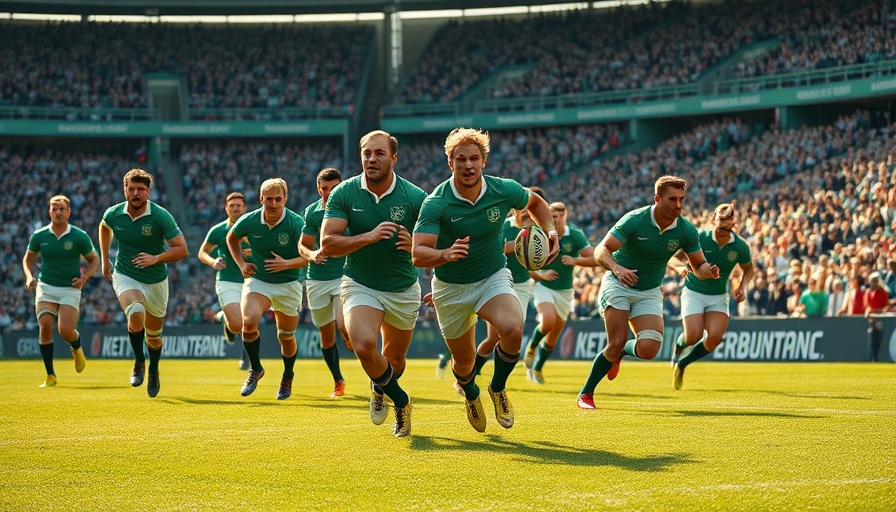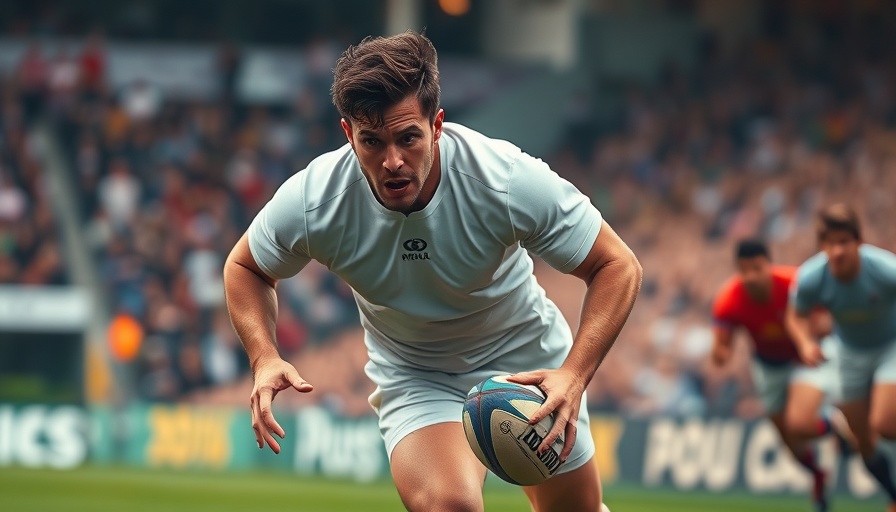
The Shifting Landscape of Rugby in Ireland
The Irish Rugby Football Union (IRFU) recently made a significant decision that has sent ripples through the rugby community: they have officially scrapped the men's rugby sevens program. This move, driven by a need for financial sustainability, indicates a shift in strategy as the union focuses on its core initiatives outlined in its strategic plan. According to reports, the IRFU incurred a hefty loss of €18 million for the 2023-24 season, emphasizing the need to streamline expenses amidst economic challenges.
Economic Challenges in Rugby
The shock of this announcement lies not only in the immediate implications for the men’s sevens team, which had previously competed in the Olympics and ranked second in the 2023-24 series standings, but also in the financial context that prompted it. Spending €4.2 million on the sevens program in a season that concluded with considerable losses raises critical questions about funding and resource allocation within the sport. The IRFU's statement made it clear: the men's sevens program was deemed non-contributory to the development pathways for the fifteens game that remains central to Irish rugby.
Impact on Player Development and Future Opportunities
In a deeply intertwined sporting culture, development pathways for athletes are crucial. The IRFU indicated that the current academy structures within the provinces offer better avenues for talent. This decision casts a long shadow over young male athletes aspiring to pursue a career in rugby sevens, a format that has brought its own brand of excitement and global recognition to the sport.
The Gender Divide: Continuing Support for Women’s Sevens
In a contrast that underscores evolving priorities within sports management, the IRFU confirmed that the women’s sevens program will continue. This initiative is lauded for playing a vital role in developing female players, aligning with the growth of women's rugby at both national and international levels. The commitment to women’s sevens may serve as a beacon of hope and opportunity for young female athletes in Ireland, championing progress in a historical context that has observed gender disparities in sports.
Global Trends in Sevens Rugby
The IRFU's choice comes at a time when World Rugby is also revising the structure of its sevens series. The upcoming three-division format proposes to reduce the number of teams in the top tier from 12 to 8, highlighting a trend toward consolidation in the global arena of sevens rugby. This evolution raises questions about competitiveness and inclusivity in a sport that has traditionally celebrated its diverse participation.
Community Reactions and Future Predictions
Within sports circles and broader community discussions, the response to the elimination of the men’s sevens program has been mixed. Fans and players alike express disappointment at the loss of what many viewed as an exciting, fast-paced variation of rugby. Looking ahead, many wonder: will the IRFU's focus on financial sustainability come at the expense of long-term growth in rugby enthusiasm? Will this create new competitive high-stakes circumstances, or will it lead to a decline in interest?
Conclusion: A Call for Unity and Support
As Ireland navigates these changes, the rugby community must remain united, advocating for open discussions about the direction the sport is headed. With resources now being focused on the women’s game, athletes, coaches, and fans have an opportunity to rally around the sport’s evolution and embrace the challenges head-on. Supporting grassroots initiatives and promoting women’s rugby can foster a stronger future for both genders within the sport.
If you have insights to share or would like to participate in community discussions on the future of rugby in Ireland, engage with local rugby clubs and follow ongoing transformations in the sport both at home and globally.
 Add Row
Add Row  Add
Add 




Write A Comment